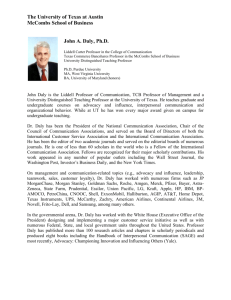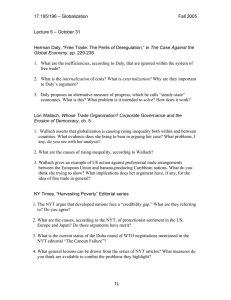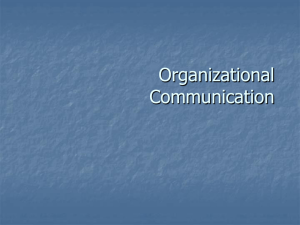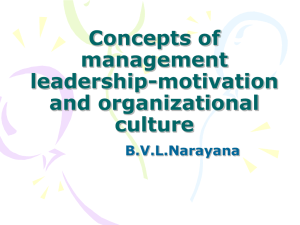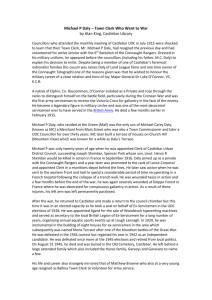by Dr. Dohn Daly, Professor in the School of Communication.
advertisement
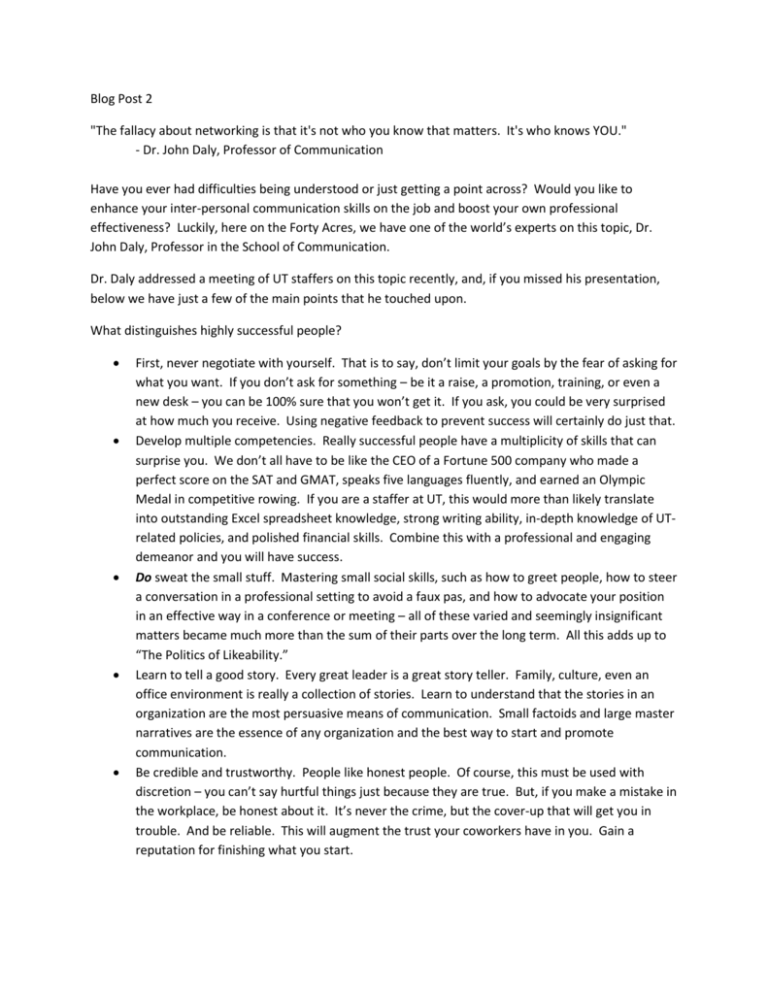
Blog Post 2 "The fallacy about networking is that it's not who you know that matters. It's who knows YOU." - Dr. John Daly, Professor of Communication Have you ever had difficulties being understood or just getting a point across? Would you like to enhance your inter-personal communication skills on the job and boost your own professional effectiveness? Luckily, here on the Forty Acres, we have one of the world’s experts on this topic, Dr. John Daly, Professor in the School of Communication. Dr. Daly addressed a meeting of UT staffers on this topic recently, and, if you missed his presentation, below we have just a few of the main points that he touched upon. What distinguishes highly successful people? First, never negotiate with yourself. That is to say, don’t limit your goals by the fear of asking for what you want. If you don’t ask for something – be it a raise, a promotion, training, or even a new desk – you can be 100% sure that you won’t get it. If you ask, you could be very surprised at how much you receive. Using negative feedback to prevent success will certainly do just that. Develop multiple competencies. Really successful people have a multiplicity of skills that can surprise you. We don’t all have to be like the CEO of a Fortune 500 company who made a perfect score on the SAT and GMAT, speaks five languages fluently, and earned an Olympic Medal in competitive rowing. If you are a staffer at UT, this would more than likely translate into outstanding Excel spreadsheet knowledge, strong writing ability, in-depth knowledge of UTrelated policies, and polished financial skills. Combine this with a professional and engaging demeanor and you will have success. Do sweat the small stuff. Mastering small social skills, such as how to greet people, how to steer a conversation in a professional setting to avoid a faux pas, and how to advocate your position in an effective way in a conference or meeting – all of these varied and seemingly insignificant matters became much more than the sum of their parts over the long term. All this adds up to “The Politics of Likeability.” Learn to tell a good story. Every great leader is a great story teller. Family, culture, even an office environment is really a collection of stories. Learn to understand that the stories in an organization are the most persuasive means of communication. Small factoids and large master narratives are the essence of any organization and the best way to start and promote communication. Be credible and trustworthy. People like honest people. Of course, this must be used with discretion – you can’t say hurtful things just because they are true. But, if you make a mistake in the workplace, be honest about it. It’s never the crime, but the cover-up that will get you in trouble. And be reliable. This will augment the trust your coworkers have in you. Gain a reputation for finishing what you start. Learn to master your very small commitments. Again, this may sound trivial, but everyone who has any success keeps their big commitments. It’s the ability to remember the little things, the details and nuances that will distinguish you in the workplace. This builds trust. Confidence is a key aspect of success in the workplace. This applies not only in your day-to-day interactions with people, but also when you need to present or advocate for something. Data has shown that people who make presentations in a confident manner are perceived to be competent. Be interpersonally savvy. Try to understand that, even if you disagree with something a colleague says, they have a very good reason, in their mind, for saying it. Smart people are able to figure out why other people think that they are right. In a meeting, for example, every question is actually a statement. Everyone has good reasons for what they do and say. If you are successful with people you will learn to figure out their “good” reasons. This boils down to Interests vs. Positions. Interests are the “What” people want and Positions are the “Why” people want it. If you can square the “What” with the “Why” you are closer to determining a course of action. Be optimistic. Every great leader is optimistic. Reframe the problem. A roller coaster can be terrifying and even kill people, but no one worries about that during the ride. If you can reframe the problem with optimism, the outcome can be very different. If you can relabel things in a positive fashion, the entire problem can diminish enormously.
